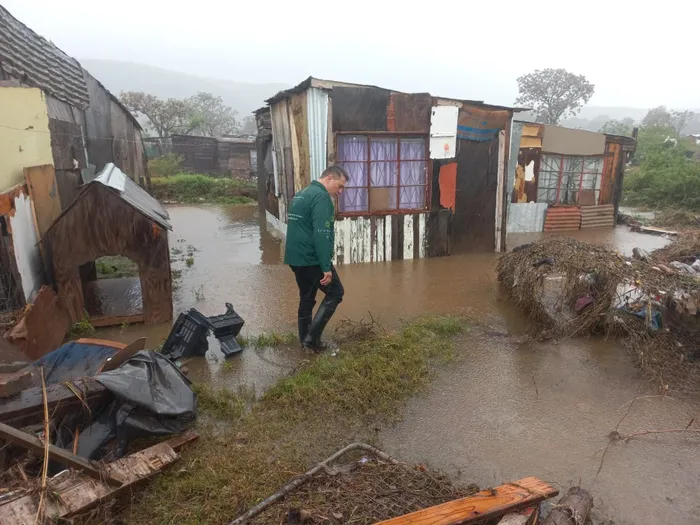‘Flooded and forgotten’: How government is failing millions living in SA's informal settlements- new report

Amnesty International in a new report has said that residents living in informal settlements have been left to fend for themselves during severe weather events, despite the state’s constitutional and legal duty to protect them.
Image: Supplied
South Africa’s government is putting the lives and well-being of more than five million people living in informal settlements at risk by failing to provide adequate housing and essential services, Amnesty International South Africa (AISA) said in a new report released this week.
The report, titled Flooded and Forgotten: Informal Settlements and the Right to Housing in South Africa, examines how floods, both large-scale and seasonal have impacted residents of informal settlements in Johannesburg, eThekwini, and Cape Town.
It found that millions of people are being “routinely left to cope on their own” during severe weather events, despite the state’s constitutional and legal duty to protect them.
“Informal settlements in South Africa, along with other underserved areas like temporary relocation areas, are a sore reminder of the racial injustice and disenfranchisement that were hallmarks of the colonial and apartheid regimes preceding 1994,” said Shenilla Mohamed, Amnesty International South Africa’s Executive Director.
“However, this does not mean that we must ignore the fact that the ongoing housing crisis and the failure of successive governments to guarantee the right to access to adequate housing, among other human rights, is a pressing issue.”
Mohamed warned that the government’s inaction has left millions “trapped in these underserved areas, especially in a time when economic hardships and poverty are rife.” She noted that people often live in informal settlements “because there is a lack of affordable and accessible formal housing and sometimes because they are the only affordable means of living close to work or work opportunities.”
Article 10 of South Africa’s Constitution guarantees everyone “inherent dignity and the right to have their dignity respected and protected,” Mohamed said, adding that this right is being violated daily for people living in informal settlements.
The report highlights the devastating impact of recent floods, including those in June 2025 in the Eastern Cape, which killed over 100 people and destroyed thousands of homes. Amnesty International said the tragedy was a stark reminder of the urgent need for “long-term action by the government.”
Although South Africa’s Disaster Management Act and National Disaster Management Framework are designed to reduce disaster risks, Amnesty found that implementation remains “patchy and piecemeal.”
In KwaZulu-Natal, for instance, people displaced by the 2022 floods remain in temporary accommodation nearly three years later. Some were later relocated to areas that flooded again in 2025, resulting in more deaths.
“The reality, as documented in Amnesty International’s report, is that millions of South Africans living in informal settlements are deprived of these rights due to central government neglect, under-resourced municipalities, and poor urban governance,” Mohamed said.
Amnesty International stressed that climate change is worsening the crisis, as human-induced warming has intensified seasonal flooding. “People who have contributed the least to climate change… are the worst affected by the impacts,” the report states.
One woman from Freedom Park in Johannesburg told Amnesty International: “We have no help from anyone, we have to stay and fix it, we can’t run away… where will we go?”
Amnesty International called on the government to “mobilise all the necessary human, financial and technical resources” to ensure that disaster risk reduction is fully integrated into urban planning and that the human rights of informal settlement residents are protected.
“Despite South Africa having strong legislation and policy and clear international commitments… implementation remains the issue,” Mohamed said. “The reality points to obvious failures of the government to adequately and thoroughly realise these obligations, and this comes at a huge cost to the human rights, lives, and livelihoods of millions of people.”